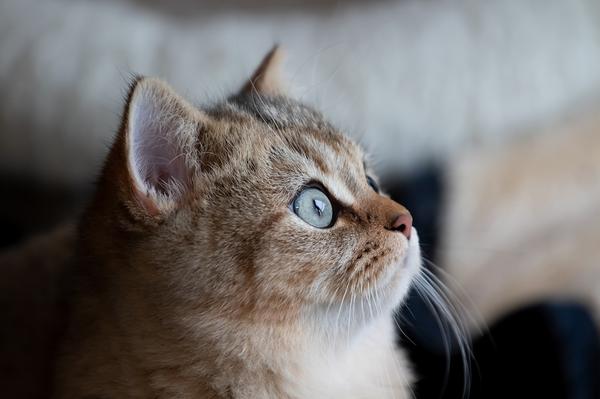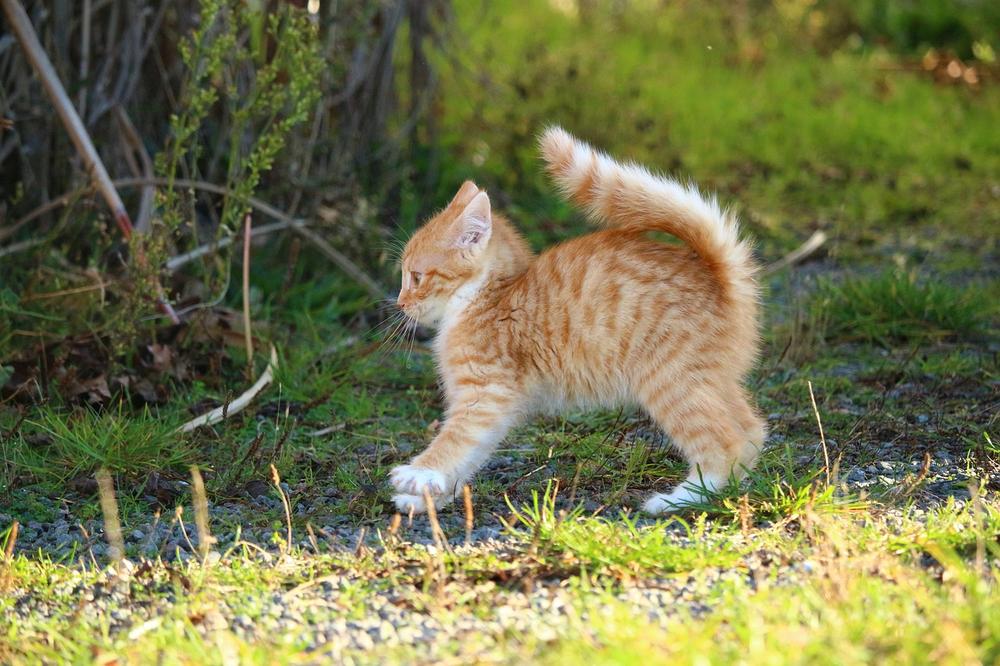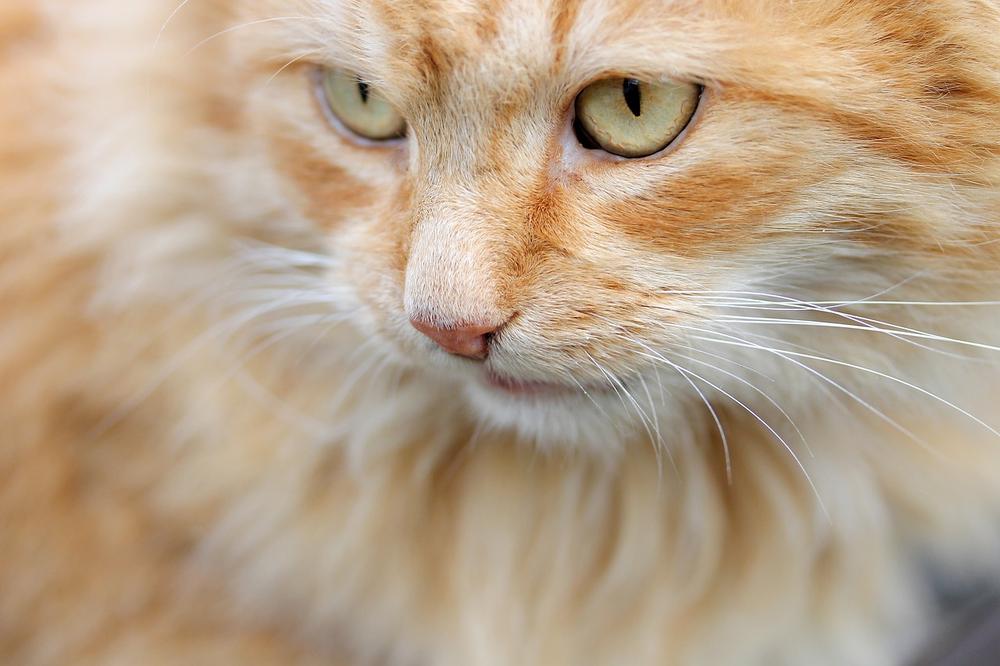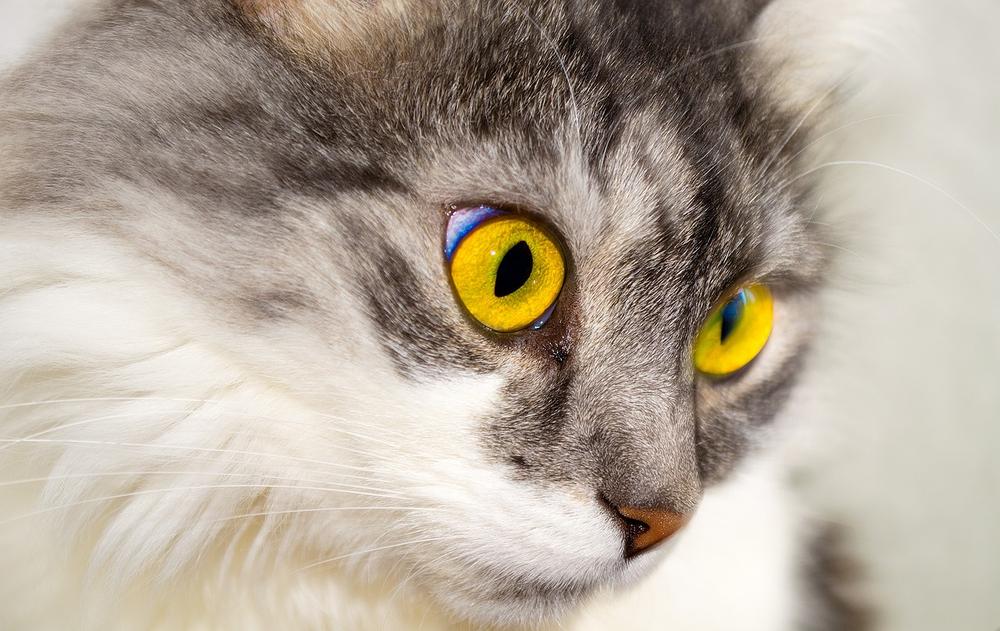If Your Cat Is Causing RELATIONSHIP PROBLEMS, Read This

Just imagine:
You and your partner are finally enjoying a peaceful evening at home, ready to unwind from the day.
But then your cat swoops in, causing chaos and throwing your harmonious relationship into chaos.
Feeling overwhelmed? 😿
Let's delve into this feline-fueled problem together.
What to Do When Cats Cause Conflicts in Relationships
When conflicts arise due to cats in relationships, here are 10 steps you can take:
- Understand the potential conflicts related to allergies, cat attacks, and differing levels of attachment.
- Gradually introduce your partner to your cat.
- Involve your partner in mealtimes and playtime with the cat.
- Expect and address behavioral issues that may arise.
- Include your partner in positive interactions with the cat.
- Recognize that disagreements over pets can lead to relationship problems.
- Be aware of warning signs of conflict, such as criticism, defensiveness, contempt, and stonewalling.
- Distinguish between solvable and perpetual conflicts.
- Consider solutions like rehoming the cat or addressing behavioral problems.
- Remember that cats do not understand punishment in the same way humans do.
By following these steps, you can navigate cat-related conflicts in your relationship and find a solution that works for everyone involved. 😺
Main points I'll expand upon further down this article:
- Limit your cat's access to certain areas of the home to reduce allergen buildup.
- Consider using anti-anxiety supplements or pheromone diffusers to ease your cat's stress.
- Avoid punishing your cat and approach misbehavior as a problem to be solved.
- Be patient in building trust with your cat and understand the reasons behind behavioral issues.
- Clingy cats can disrupt your sleep schedule, but understanding their behavior can help.
But what if your cat's behavior is causing conflicts in your relationship?

That's where a little expert advice can come in handy!
Your Cat Pees on Your Partner’s Things
If your cat has a habit of peeing on your partner's things, here are some practical tips to help you address this issue:
- Consult with a veterinarian: Make sure there aren't any underlying medical issues causing your cat's behavior. Getting expert advice can provide valuable insights and solutions.
- Limit access and clean regularly: Keep your cat away from areas where they tend to urinate. Vacuum and steam clean upholstery and carpets to minimize allergen buildup that might attract your cat.
- Explore anti-anxiety options: During times of stress or change, consider using anti-anxiety supplements, special cat foods, or pheromone diffusers like Feliway to help calm your cat's nerves.
- Avoid punishment: Punishing your cat for their misbehavior is ineffective and unfair. Instead, approach any problems as puzzles to solve together. It takes time and patience to build trust and establish new habits.
- Create a positive environment: Set up an inviting litter box area with multiple options containing the type of litter your cat prefers. Place it in a quiet and accessible spot.
- Additional playtime: Engage your cat in daily interactive play sessions to help reduce stress and anxiety.
Addressing your cat's peeing behavior requires understanding, patience, and consistent implementation of these tips.

And now, let's talk about establishing a consistent bedtime routine for your cat.
I've found that this is not only beneficial for their sleep but also plays a crucial role in preventing behavioral issues such as early morning wake-up calls...
Your Cat Wakes You Up Early
Establishing a consistent bedtime routine for your cat is KEY.
Here are some strategies you can try if you find yourself dealing with an early-rising feline:
- Engage in high-intensity interactive playtime with your cat before bedtime to help them expend energy and promote better sleep at night.
- Avoid feeding your cat right before bed, as this can sometimes lead to an early morning wake-up call. Instead, offer a small snack a few hours before bedtime so they aren't hungry but won't have the urge to wake you up for food either.
- Invest in puzzle toys or treat-dispensing games that can keep your cat mentally stimulated during the night, reducing their likelihood of waking up early.
- Gradually adjust your cat's feeding schedule to align with your desired wake-up time. By slowly pushing back meal times, you can reset their internal clock over time.
- Create a comfortable sleeping environment for your cat. Make sure their sleeping area is cozy, quiet, and free from any disturbances that might trigger early morning awakenings.
- Consider using white noise machines or calming music to drown out any external noises that could startle your cat awake.
With a bit of patience and experimentation, you’ll be able to regulate your cat’s sleep patterns and enjoy uninterrupted mornings!

And if you're finding that your cat's early wake-up calls are causing frustration or concern, I have a solution for you.
In my guide to understanding why your cat might be suddenly ignoring you, I explore possible reasons behind this behavior.
So, if you're curious to learn more and find ways to address this issue, I invite you to check out my article on Why Is My Cat Ignoring Me All of a Sudden.
It's time to regain that special bond with your feline friend.
Divvy Up the Kitty Chores
When it comes to sharing the responsibilities of being a pet parent, communication is key. You gotta talk openly with your partner about how you'll divide up all those kitty chores.
Here are some practical tips to help you out:
- Sit down together and have a chat to make a plan. Figure out who's gonna do what - like feeding, giving medication, and cleaning the litter box.
- Show some love for the cat. Even if one of you isn't crazy about cats, it's important for both partners to show compassion and care. This way, you'll strengthen your bond with the little furball and create a peaceful home.
- Respect each other's relationship with the cat. If one of you has a special connection with the cat, it's crucial for the other person to respect that. Leave any feelings of jealousy or resentment behind.
- Be proactive if your partner has allergies. If your partner can't handle being around cat allergens, take steps to reduce exposure. Keep Fluffy out of certain rooms or consider using air purifiers.
- Don't forget the budget. Make sure you include pet insurance in your finances. That way, you'll be prepared to handle any unexpected expenses.
A happy cat and a healthy relationship need effective communication and understanding.
Keep Your Cat Out of the Bedroom
Cat allergies are a common issue, affecting about 20% of people worldwide.
To prevent worsening the situation, it's crucial not to scold your feline friend when they misbehave.

Instead, offer them appealing alternatives, like a cozy bed or scratching post, in a specific area outside the bedroom.
This will divert their attention and ensure uninterrupted intimate moments.
Plus, it gives your furry companion a peaceful napping spot. Remember, creating a calm environment is key when dealing with cat allergies.
So, focus on providing enticing options rather than reprimanding your playful kitty.
Don’t Talk About Your Cat Too Much
I understand, cats are amazing and bring so much joy to our lives.
But not everyone wants to hear about your cat all the time.
So here's what you can do:
Find other ways to share how much you love cats.
Join online forums for cat parents or connect with friends who love cats too. That way, you can talk about everything cat-related without overwhelming your partner.
Tone down excessive cat talk in relationships
When you're on a date or in a relationship, you must strike a balance between talking about yourself and showing interest in the other person. And that includes toning down the cat talk.
Sharing some stories or quirks about your cat is great (after all, they're part of your life), but dominating every conversation with tales of your furry friend might be too much.
Not everyone may love cats as much as you do, and too much cat talk can turn people off.
Avoid codependent relationships centered around your cat
We know dressing up your cat in cute outfits or creating social media accounts for them is fun.
But be aware that some people might find it creepy or just plain weird.
So, it's advised to talk about your cat sparingly with your date or partner.
Instead, find other topics to bond over and explore different aspects of each other's lives.
By doing so, you can avoid falling into those codependent relationships where your cat becomes the sole focus of your interactions.
And that wraps up today's article.
If you wish to read more of my useful articles, I recommend you check out some of these: Does Your Cat Sigh, Neighbours Cat Meowing All Night, Why Does My Cat Follow Me to the Bathroom, Why Does My Cat Slap Me With His Tail, and Why Is My Cat Obsessed With My Bras
Talk soon,
-Sarah Davis